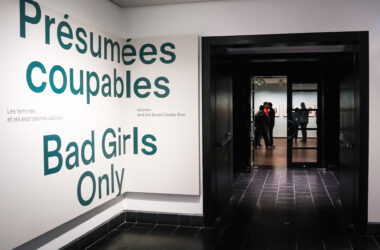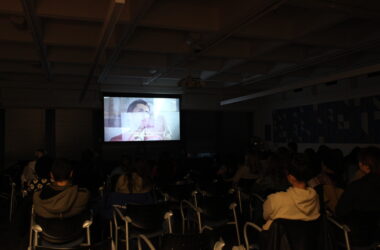In 2017, Damien Chazelle’s La La Land received a record 14 Oscar nominations. The film, which met with critical acclaim as well as enormous box office earnings, was an ode to the lush Hollywood musicals of the 1950s. But by the time that the Oscars race began, critics were tiring of La La Land’s tone-deaf optimism and white-washing of jazz music, prompting an inevitable backlash. Popular favour shifted to Barry Jenkins’ Moonlight for Best Picture: A gentle, luminous film about a black gay man that stood in opposition to La La Land in every way. For many, Moonlight’s eventual Best Picture win over La La Land represented the triumph of the Oscar underdog over the awards season ‘villain.’
Broadly put, a ‘villainous’ film teeters on the brink of offensiveness by featuring only straight, able-bodied actors, privileging white narratives, and going against the grain of youthful, online critical consensus. In the #MeToo era, this definition extends to films produced or directed by predatory figures. If the endless online cultural critiques on platforms such as Twitter and Letterboxd are any indication, it seems that no one wants these films to succeed, yet they rack up nominations and win.
After the outcry brought about by the overwhelming whiteness of the 2015 Academy Awards, the Oscars implemented a higher standard for representation. The runaway critical and financial success of Black Panther, Girls Night, and Crazy Rich Asians proved that films featuring non-white protagonists are just as profitable. Diversity and profit margins are compatible, but the Academy chose to respond to this industry trend with the short-lived and maligned addition of a ‘popular film’ category—the implication being that as commercial films with diverse casts began succeeding, the Academy designated a category of lesser prestige to account for those movies.
Bohemian Rhapsody and Green Book have taken up the mantle of this year’s villain narrative, and while previous villains’ faults were largely subtextual, this year’s villains have more egregious issues in their production in addition to their woefully-homogenous casting choices. Bryan Singer, director of Bohemian Rhapsody has been accused of sexual assault and while he left production before completion, the film’s credits still bear his name. Bohemian Rhapsody tells the story of Queen’s meteoric rise while cleaning up (read: straightening up) Freddie Mercury’s personal life. Green Book, directed by Dumb and Dumber helmsman Peter Farrelly, tells the true story of the friendship between a black, gay piano player, Dr. Don Shirley, and his white chauffeur. However, Green Book, in typical villainous form, has been diagnosed with a case of ‘white saviour complex.’ While the film overflows with saccharine nods to ‘how far we’ve come,’ Dr. Shirley’s family has accused the filmmakers of misrepresenting their relative and exaggerating the friendship for the sake of ‘multiculturalism.’ Even more upsetting was director, Peter Farrelly’s admission to having exposed himself on set. Add in the public use of a racist slur by the white star, and pro-Trump tweets from one of the film’s writers, and, if the subsequent internet outrage is an accurate barometer, Green Book should kiss its Oscar dreams goodbye.
However, on Jan. 22, the Academy announced that both Green Book and Bohemian Rhapsody received Best Picture nods. Despite swirling bad press, a myriad of think pieces, and plenty of rightful criticism, 6000 members of the Academy thought that these films’ positive qualities outweighed their overwhelming negatives. The Academy is oft thought of as a singularly-minded force, when, in reality, it is fractious and increasingly diverse. Whether these villains will come home with hardware on Feb. 24 will depend on which faction of the Academy proves influential. Villain narratives provide invaluable clicks that sustain the thinkpiece economy and will therefore likely remain a mainstay of awards season. Nevertheless, the Academy should focus not on drumming up excitement for a Green Book or Bohemian Rhapsody flameout, but instead on honouring films that are radical, diverse, and reflective of this politically-turbulent era.








